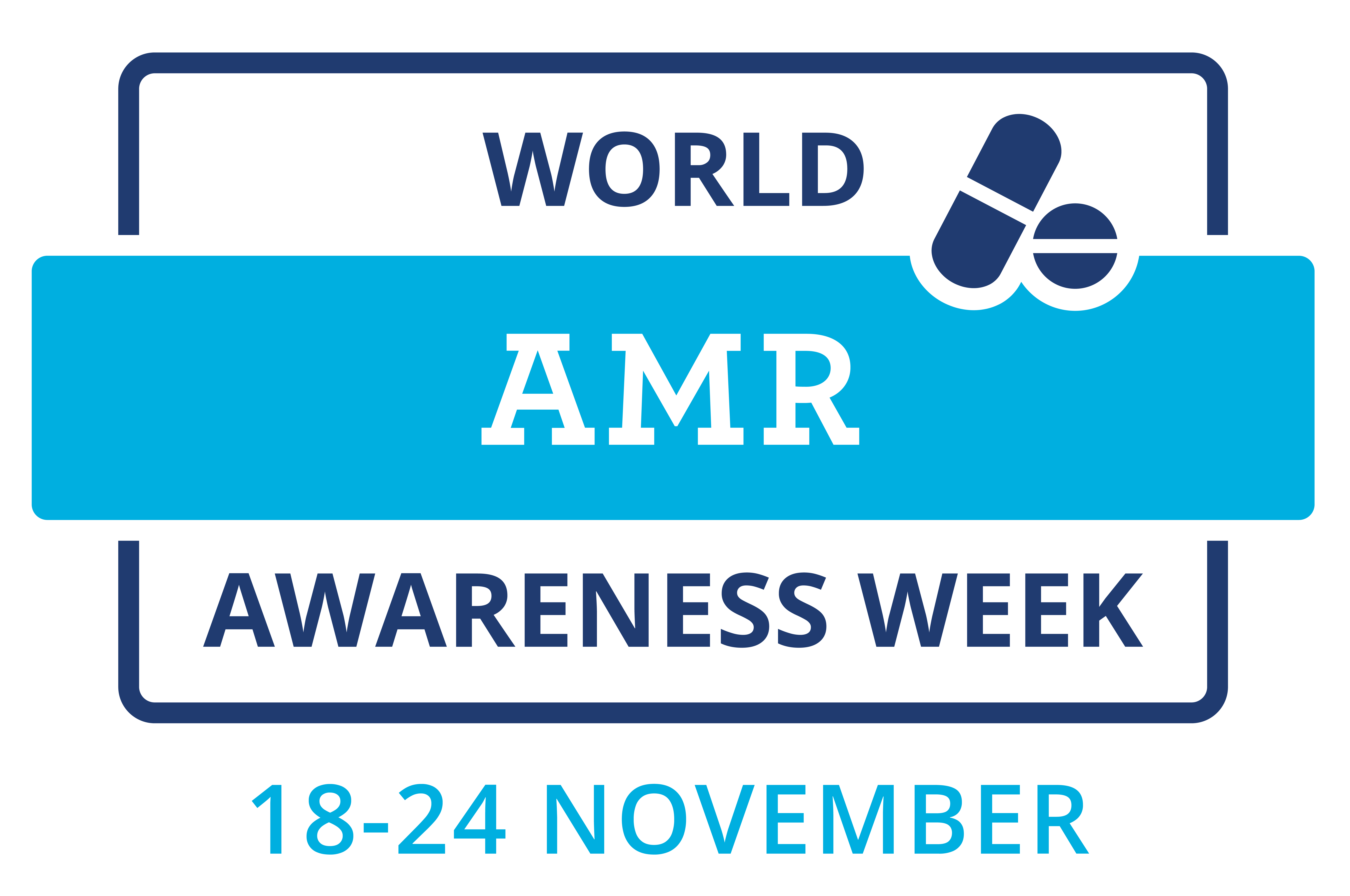
World AMR Awareness Week
November
World AMR Awareness Week
World AMR Awareness Week (WAAW), held annually between 18–24 November, aims to increase awareness of global antimicrobial resistance (AMR) and encourage best practices among the general public, health workers and policy-makers to avoid the further emergence and spread of AMR.
AMR occurs when microorganisms, such as bacteria, viruses, parasites or fungi, change over time and become resistant to antimicrobial medicines to which they were previously susceptible. The rise of resistant pathogens is rendering once-treatable infections increasingly difficult and, in some cases, impossible to manage. Without effective interventions, AMR has the potential to reverse decades of medical progress, leading to increased morbidity, mortality and health-care costs.
AMR: a global emergency
AMR is responsible for 133 000 deaths each year in the WHO European Region and is costing countries of the European Union and European Economic Area an estimated €11.7 billion annually. Urgent action on AMR is required to improve health and save lives. The United Nations General Assembly (UNGA) 2024 Political Declaration of the High-level Meeting on Antimicrobial Resistance outlines critical targets, including a 10% reduction in global AMR-related deaths by 2030 and a decrease in antibiotic use within the agriculture and food sectors. It calls for urgent action and heightened incentives for research and development (R&D).
WHO/Europe joins UNGA’s call for immediate action against AMR and urges all Member States in the Region to take part in WAAW. This is a unique opportunity to join the global community in advocating for prudent antibiotic use. WAAW continues and broadens the scope of European Antibiotic Awareness Day (held annually on 18 November), a European initiative that WHO/Europe joined in 2012 and extended to non-European Union Member States.
Controlling AMR
Health ministers and delegates from WHO/Europe’s 53 Member States have endorsed the Roadmap on AMR (2023–2030), which supports countries in the Region to identify, prioritize and implement high-impact interventions to tackle AMR. The Roadmap advocates looking at AMR from a One Health perspective as well as taking a whole-of-government approach, rallying all sectors to reform their ways of working and experimenting with new approaches at all levels, from global to local.
Events
Publications
Stories of AMR: antimicrobial resistance
The Stories of AMR photobook was developed by the WHO Regional Office for Europe as part of an awareness raising campaign that uses the power of photography...
Fact sheets
From the global site
Related health topics





